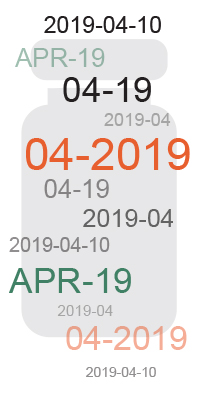You Asked Us: Checking Medication Expiry Dates
2019-04-10
Expiry dates on medicated products, including medications and natural health products, are important. While many medications still work for a short time after the expiry date has passed, for safety reasons, it is always best to replace expired products. Many medications will not work as well as a non-expired product. And some can break down into chemicals that are dangerous if swallowed.
Pharmacies are required to make sure that all medications offered for sale, both prescription and over-the-counter, have not passed their expiry date. If you are purchasing a medication that will be used only occasionally, check the expiry date to avoid buying a large quantity of a medication that won’t be used up before it expires.
SafeMedicationUse.ca has the following suggestions for consumers to help check and manage the expiry dates of their medications:
-

-
Look for the expiry date on the side of a carton, the bottom of a bottle, or the end of a tube. Be careful not to confuse the expiry date with the lot number. Expiry dates can be shown as: MMM-YY, MM-YY, MM-YYYY, YYYY-MM, or YYYY-MM-DD, where M means "month", Y means "year", and D means "day". The month can also be expressed as either a number or a group of letters; for example, 01, JA, and JAN all mean January. When only the year and month of the expiry date are shown, the actual expiry date is the last day of the month shown.
-
Check your medicine cabinet every year and remove (and replace, if needed) any items that have expired. Checking expiry dates is very important for medications used to treat serious conditions, such as epinephrine auto-injectors (e.g., EpiPen) for life-threatening allergies.
-
Return any unused, unwanted, or expired medications and natural health products to a pharmacy for disposal. The pharmacy staff will dispose of the medications safely.
-
Ask to add the medication's expiry date to the label of a prescription vial if you will not be using the medication regularly. Most medications provided in a prescription vial do not include an expiry date on the label.
Medication safety bulletins contribute to Global Patient Safety Alerts
This newsletter was developed in collaboration with Best Medicines Coalition and Patients for Patient Safety Canada.
Recommendations are shared with healthcare providers, through the ISMP Canada Safety Bulletin, so that changes can be made together.
|

